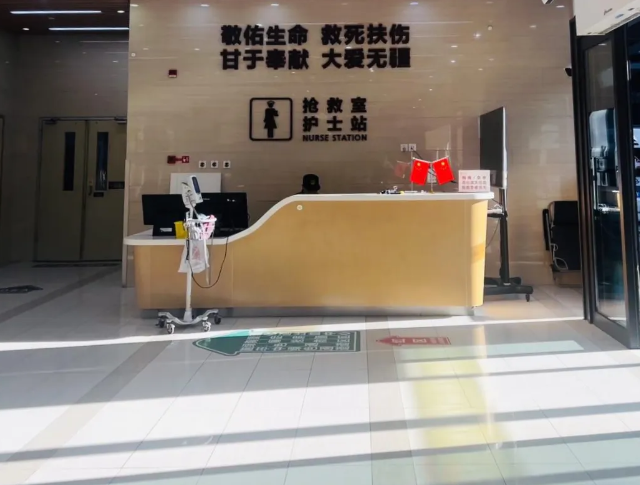- News
A Race Against Time: A Special New Year's Eve Story in the Emergency Room of Shanghai General Hospital
https://mp.weixin.qq.com/s/XCmVFdo7FEWWnTfoMjtGYg
In the emergency department, every second counts. Life-saving interventions rely on advanced diagnostic equipment and precise medical treatment. However, medicine is ultimately a blend of science and humanity, and sometimes, a warm conversation can be just as effective as a prescription. On New Year's Eve, such a story unfolded at Shanghai General Hospital.

At 4 a.m., a mother and daughter walked into the emergency consultation room at the Hongkou Campus of Shanghai General Hospital. The mother wore a deeply worried expression, complaining of chest tightness and discomfort. Dr. Liu Siting, the attending emergency physician, conducted a thorough medical history inquiry and completed all necessary examinations, yet the results showed no abnormalities. Just as she was about to explain the findings, the patient’s daughter suddenly spoke up, “Doctor, today marks the 21st day since my father passed away. He was only 57, not yet retired, when he suddenly died. My mother has never been able to accept it. Could her chest tightness be related to this?”
The moment Dr. Liu heard the words “sudden death,” she immediately understood why this woman’s distress seemed to far exceed that of a typical patient. At this early hour, the emergency department was relatively quiet, allowing ample time for communication. Trusting her medical intuition, Dr. Liu instinctively asked about the circumstances surrounding the father’s passing. The daughter responded, “He was resuscitated here in this hospital.”A sudden realization struck Dr. Liu—she recalled discussing a similar case three weeks earlier. Back then, a patient had been rushed into the resuscitation room following a sudden cardiac arrest. Despite prolonged chest compressions and intubation, the resuscitation efforts had failed, and the cause of death remained uncertain. The case had been discussed extensively, leaving the medical team deeply regretful. She never expected that, three weeks later, the story would continue in such an unexpected way.
Dr. Liu pressed on with her questions, learning that the father had experienced flu-like symptoms for several days before seeking treatment at a nearby clinic. After taking the prescribed medication, he ate a large meal at home and fell into a deep sleep—never to wake again. Further inquiry into his medical history, allergies, and past medication use revealed that he had been diagnosed with diabetes during a routine health check but had never sought proper medical care. Instead, he had only obtained basic prescriptions from a community clinic. Despite his daughter’s repeated reminders to monitor his blood sugar levels, he always responded over the phone with, “I checked, I checked,” when, in reality, he rarely did.
With this information, the cause of death became clearer—undiagnosed and unmanaged diabetes likely led to complications such as heart disease or severe influenza-induced acidosis, which in turn triggered cardiac arrest or fatal airway obstruction. Dr. Liu carefully explained these possible causes to the family and emphasized the importance of chronic disease management. Gradually, some of their lingering doubts and emotional burdens began to lift.
No medication was prescribed during the entire consultation—the treatment was purely through words, a form of "verbal therapy." Before they left, Dr. Liu advised the daughter to take her mother on a trip to help her heal and, if needed, seek psychological counseling. She wished them both a fresh start in the new year, hoping they could emerge from the shadows of grief and move forward.
Reported by: Liu Siting, Wang Ruilan, Emergency and Critical Care Department
Edited by: Hu Yang, and Cai Shishi, Department of Publicity and Spiritual Civilization
